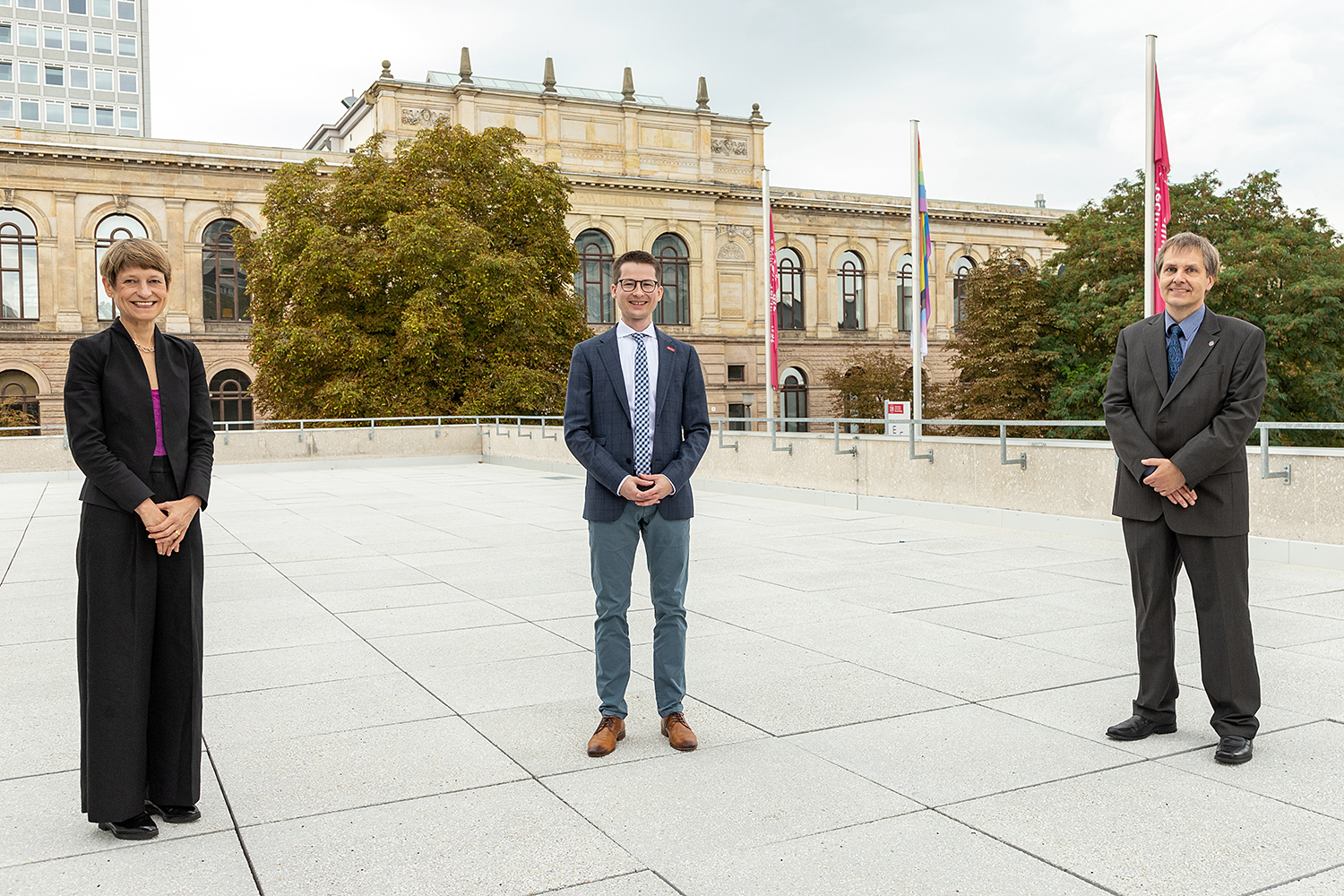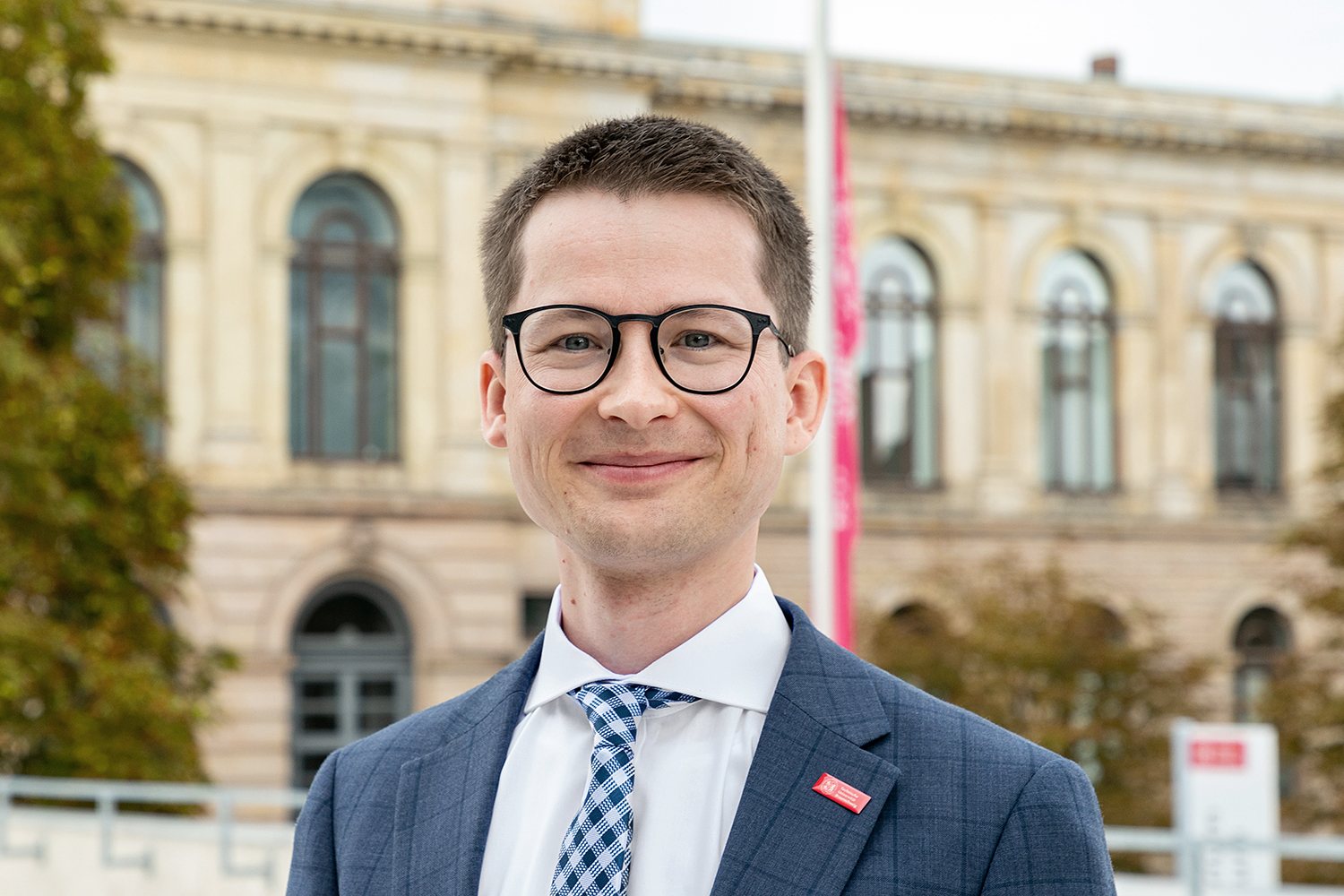Regional and urban development in the course of time Felix Rösel is the new Professor of Economics
Why are some regions so much more attractive and prosperous than others? What effects do regional differences have on cohesion and economic development? Felix Rösel deals with questions like these. From 1 October 2021 he will be the new Professor of Economics with a focus on urban and regional economics at the Institute of Economics at TU Braunschweig. In the interview, he talks about his research and his philosophy for studying and teaching.
Professor Rösel, what exactly do you deal with?
We all know difficult life decisions like this: live in the city near work or go out to the country and commute? Go to Berlin for a Master’s degree or stay in Braunschweig? The organic tomato from Spain or from conventional cultivation around the corner? Regional economists are interested in such location decisions, which have something to do with personal preferences, the wallet, but also with infrastructure and politics. Private individuals, companies, suppliers, public authorities – they all look for their best possible location. Some regions attract particularly large numbers of people and businesses, others have less traction. I examine why this is so and what effects regional differences have on prosperity and economic development.
Among other things, you analyse historical data on regional and urban development. What made you decide to do research in this area?
I was once asked why, despite many billions of euros in financial aid and redeveloped inner cities, the discontent in many parts of East Germany is so great. Unemployment is more or less at the same level as in the West, disposable incomes are almost equal. So where is the problem? I have compiled economic history data over many years to finally get to the bottom of this question. My data show very clearly how deep the past is in East Germany’s bones. The East lost its youth to the West twice: in the wave of emigration up to 1961 and then again after 1990. Today, the population of East Germany is back at the level of 1905, when the Kaiser (emperor) still rode through the country in a horse-drawn carriage. West Germany, on the other hand, has never had as many inhabitants as it does today and is rushing from record to record. The division of Germany tore our country apart with full force and catapulted it onto two completely different paths of development. Those who know this also better understand the great regional differences in today’s state of mind.
To what extent do you then relate this historical data to the present day and what can be learned from it?
Digitalisation will greatly change our everyday life and work. We are faced with the difficult task of accompanying and shaping this profound change. Historical data helps us to understand how successful regional structural change can succeed. After all, digitalisation is not the first structural change in human history. I collect historical data documenting the transition from an agricultural to an industrial society and from an industrial to a service society. Some regions in Germany have mastered change much better than others. These recipes for success can also help us in the political shaping of today’s structural change.
Will this also be your research focus at TU Braunschweig?
Absolutely. But we have to think about rural areas first and foremost. The city of the future cannot exist without the village of the future. We have to connect both areas intelligently and find new ways to do so. In the past, rural communities were simply incorporated into larger cities. That was a big mistake. My research shows that incorporations hardly bring any economic advantages. But rural areas feel disempowered and lose influence. In Ukraine, a different approach has been taken for some years and more powers have been handed over to local governments. In an international research team, I am investigating whether and how this more local autonomy can contribute to growth and democracy.
Why did you choose TU Braunschweig?
TU Braunschweig has developed a clear orientation and a convincing idea with its main research areas. I’m also fascinated by the combination of cutting-edge research on the one hand and the friendly, open and often familiar atmosphere on the other hand. And as a hiker and nature lover, I find the proximity to the Harz and Elm mountains simply great.

At the appointment (from left): TU President Prof. Angela Ittel, Prof. Felix Rösel and Prof. Matthias Bollhöfer, Dean of the Carl-Friedrich-Gauß Faculty. Photo credit: Kristina Rottig/TU Braunschweig
What has been your best experience as a scientist so far?
When a research paper is accepted by a renowned journal, your stomach really tingles for a few days – like Christmas for children. Those are always nice experiences, because then the effort of many years has paid off. But I have particularly fond memories of the Nobel Laureate Meeting in Lindau in 2017. Every year, young researchers from all over the world meet there with top economists. In delightful sunshine on Lake Constance, I was able to present my research to Nobel Laureates like Bengt Holmström and exchange ideas over lunch. That was an unforgettable moment.
What role does science communication play in your work?
It is a great privilege to be able to work as a scientist. I therefore feel it is a matter of course to share my research findings with society, the media and politics. In recent years, I have had the privilege of participating in a number of parliamentary hearings. Again and again I notice that too few findings make it out of the journals and into the public debate. Unfortunately, this often also applies to teaching. I want to make the latest research accessible to both students and the public. By the way, this transfer is also very helpful for one’s own work. Often you only realise what you have really researched and found out when writing a press release.
What constitutes good teaching for you?
For me, good teaching means passion and comprehensibility. Every discipline has its own characteristics. I think it’s important to convey what your own discipline deals with, how researchers work in your own subject and why your own topics are so important for all of us. This makes you curious and hungry for more. But good teaching also needs comprehensibility. The most influential research papers are usually also written in a particularly comprehensible way, which is also why their ideas are so powerful. If comprehensibility helps in research, it helps even more in teaching.
The winter semester 2021/22 will start soon. What would you like to give the students to take with them?
Study, read and live with extra quality this semester. Tip one: Study quality. Don’t chase after grades, but look for your personal topic of heart. And dare to become an expert on exactly this topic – for one semester or for your entire studies. Tip two: Read quality. Try out a trial subscription to a printed daily newspaper. Ask your lecturers about good journals and read the abstracts of current issues. Tip three: Live with quality. If learning is slow again, throw a dart at a map and just go there. The train ride is a great way to write that long-postponed term paper. And discovering one of our beautiful cities and regions makes you happy.

